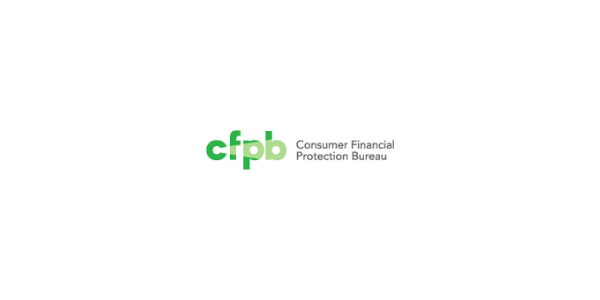Advertisement
Changing Market Opportunities: What Originators Should Know That Can Impact Career Changes

As the mortgage industry undergoes continued signs of recovery, many lenders are hiring again—but are much more selective in their qualification requirements for new employees. Where lenders were content to fill their ranks with relatively young, fresh-faced talent just a few years ago, today’s market demand is for proven, experienced professionals that not only do the job, but do it well.
Where the industry is today
Today, due to a combination of factors, the mortgage industry is experiencing a bit of a “brain drain” related to loan originators. When the Consumer Financial Project Bureau (CFPB) implemented new standards affecting loan originators’ compensation, many experienced professionals simply left the industry. Because many lenders are not willing to invest revenue to recruit and train new entrants, there is a significant concern that there will be a lack of talent developing within the industry in the future.
Perhaps the largest contributing factor is that the majority of today’s originators are now paid a base salary plus basis points whereas in the past, they received a certain percentage of the revenue they generated from closings. As a result, originators are focused on quantity and quality because their compensation is based on flat production, rather than closing a handful of high revenue loans to generate the same level of compensation.
The marketplace is going to face another change when the CFPB makes a final decision in January regarding new disclosures required under Dodd-Frank and the Consumer Protection Act. The good news is that lenders are starting to see some experienced loan originators that left the industry beginning to come back into the fold, but they still must be re-trained on new compliance rules and regulatory requirements.
In an effort to attract the best talent, some lenders have gone so far as to hire legal experts to help design a compensation structure that remains both compliant and competitive. Lenders are also expanding their internal compliance teams with professionals who are well-versed in compliance, fair lending and quality control to insure they have their bases covered on the day-to-day implementation of the ordinance requirements. As much as five percent of a lenders’ employee base is now completely dedicated to compliance. While this increases costs across the board, it helps alleviate the risk errors that could negatively impact business in the future.
Chartered banks versus mortgage lenders
Additionally, there has also been a major shift in the workforce as numbers of loan originators have chosen to work for chartered banks over traditional mortgage lenders because the banks do not have the same licensing requirements, such as background and credit checks.
While an originator may see working for a bank as a quicker path to entry into the industry, the potential downside is that if that originator ever decides to take the licensing test required to work for a mortgage banker, the National Mortgage and Licensing Systems (NMLS) instantly notifies their current employer—an uncomfortable situation for the originator who could be fired immediately, regardless of whether or not they pass. This negatively impacts the industry as a whole because it may keep disgruntled employees working for a bank (which does not benefit the originator or the bank) and it prohibits originators from testing their potential value in a free market environment.
How mortgage originators can evaluate their current situation
One of the constant refrains of mortgage originators today is, “If company X can do this, why can’t mine?” The simple truth is that there is always a level of risk that one company is willing to take that others are not. Additionally, mortgage originators must carefully consider that every company has its own set of strengths and weaknesses and he or she must evaluate where they would best fit as an employee.
Some companies are more willing to take more risks in business because they are not hindered by the large legacy issues of companies that continue to do business in the same way as they did preceding the mortgage industry crash.
A major factor that the industry uses to evaluate risk is the Federal Housing Authority’s (FHA) Neighborhood Watch system, which evaluates a lender’s loan performance over a 24-month rolling cycle using a formula of defaults to originations. This formula is referred to as a compare ratio because it factors a company’s defaults vs. lenders in its area. If a lender’s compare ratio is at 100 percent, then its defaults compare with its peer group. A company may also have a stellar compare ratio with FHA, therefore the risk is lower if the loan does go into default. Of course, if a company is not dependent on the large lenders to sell its loans, there is a larger pool of product and guidelines available. Companies that are able to securitize their loan portfolio have a distinct advantage in the market place.
Not every company is going to take advantage of every loan type or take all of the risk to get each and every loan done. Just because a fellow loan originator closed a deal on a tougher loan doesn’t necessarily mean his company is ‘better’ than your current employer. There is a great deal of evaluation factors that every mortgage originator should carefully consider before deciding to jump the fence:
►Service: How responsive is your corporate office to your needs? Can you get your underwriting staff to return your phone calls? Is your closing department quick to the draw in working with your title companies needs and consistently available?
►Rates: If your company is not competitive in the industry’s hyper competitive marketplace, then you are missing out. However, your company may have the best rates in town, but if you do not have enough support in your corporate office to get the loans processed, underwritten and closed, then the best rate means nothing.
►Compensation: In the era of Dodd-Frank, is your company being fair in relation to your competitors? The same argument on the best rate applies here. You can have the best compensation plan but without support staff, it is meaningless.
►Longevity: Make sure the company you join is financially sound. Do they have a good FHA compare ratio? It is important to have good relationships with their funding source, whether it is a bank or a warehouse bank. Trouble will be on the horizon if the bank has a poor capital ratio or a private mortgage banker does not have sufficient liquidity.
Looking ahead
While there is still a great amount of uncertainty concerning the CFPB’s disclosure requirements, the leaders in the marketplace have been preparing for the proposed changes since the law took effect back in 2011. Proper preparation for new regulations will create and environment that encourages employees to embrace the changes and perform at a higher level, rather than creating disgruntled employees who may try to challenge every aspect of the new law. It is best for lenders to face the changes head on and not push them aside to deal with down the road.
The broader industry implications of the new regulations are that all lenders (large and small) will be on a more even playing field—rewarding those companies that have invested time, resources and training to their originators.
Eddy Perez is president of Atlanta-based Equity Loans LLC. Eddy has more than 10 years of experience in the mortgage industry as a top producing loan officer, sales/branch manager and executive. He may be reached by phone at (678) 205-4050 or e-mail at [email protected].
About the author





